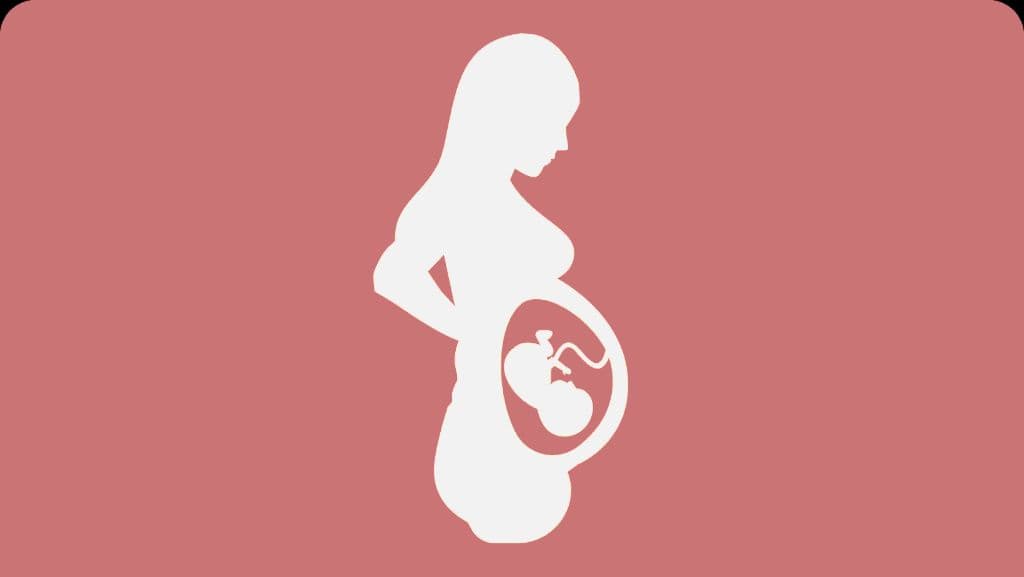Firstly, congratulations if you are reading this and we wish you good luck with the new journey you are embarking upon. In today's time, a majority of pregnancies are planned in advance. This gives both parents enough time to plan for themselves and their little one coming into the world. Preconception planning or having a preconception checklist allows the parents to transform into their best physical, mental and emotional health – all prepared to raise a baby. So if you are about to have a baby on board, here are few things you can follow for a better conceiving experience:
1. Have an action plan
You could write down all the possible points of action involved in the process of getting pregnant and later upon the baby’s arrival. Having a baby in your life is definitely going to change a lot of things. It will demand a lot of your time, energy and financial support. And it is common to get overwhelmed by such sudden changes. So maintain a flexible plan around pregnancy and childbirth that will give you a sense of control and allow you space to plan for the future.
2. Rework your lifestyle
If you have always waited for the right reason to begin your fitness journey, now is the right time to consider doing the same. Transforming into a more positive lifestyle is extremely important for both parents during this process. If you focus on a healthy lifestyle, biologically conceiving and maintaining a healthy pregnancy will get easier.
Four important aspects to work upon, to improve your overall lifestyle.
a. Nutrition- You are what you eat. To feel energetic, fresh and motivated, you must consume a diet that comprises healthy locally sourced produce that is free of harmful preservatives and pesticides. This will also help in balancing and marinating your hormonal health. Limiting processed food intake is also a great step in that direction.
b. Physical Activity- Set and follow a routine that allows you at least 150 minutes of physical activity a week. The benefits of regular physical activity are innumerable. If you are physically fit, it will just ensure that you have a healthier complication-free pregnancy. If you aren't working out already, start right now. You can surely start small and build towards a bigger goal that will help you in achieving some of your other important life goals.
c. Sleep- Not only your physical health, but even your mental health plays a crucial role in increasing the chances of success of the pregnancy. If you are constantly tired and sleep-deprived, you may find difficulty in your performance, further leading to a delay or obstacle in pregnancy. Expectant parents can focus and work on three areas for better sleep.
- Sleep schedule: Going to bed around the same time each day helps your body to set a great circadian rhythm, so as you can experience a sound sleep.
- Sleep hours: You must ensure that you get at least 6-8 hours of sleep a day.
- Sleep quality: A sound and undisturbed sleep is as important as the duration of sleep. It helps you wake up feeling more refreshed and energetic for the next day.
d. Optimize for your stress levels- Too much stress can adversely affect your sleep and your hormonal health, ultimately making it harder for you to conceive. You must optimize a proper stress management routine and find ways to diffuse the unnecessary stress in your life.
e. Quit on the intoxications- Alcohol, Smoking and Caffeine should ideally be cut down fully. You may want to seek professional help if you are finding it difficult to quit alcohol, smoking or any other recreational substances. If it is not possible to completely cut down, you can try limiting caffeine intake to less than 200mg per day.
f. Toxin Exposure- It is very important to spend the majority of your time being present in an area/room with clean air. Avoid being present in areas/rooms with chemical gases, vapours, dust or high pollution. This exposure can affect your immunity levels, further causing complications in conceiving. You must avoid this with proper precautions and safety measures.

3. Find the right gynaecologist for you
You can proudly say that it’s time for a new best friend – and that will be your gynaecologist! From planning to delivery to post-partum, the gynaecologist will not only play the role of your doctor, but also a mentor, friend, counsellor and well-wisher. For some, planning a pregnancy to having a baby is a short and sweet journey, but for others, it may take longer and challenging. So it’s highly important to find a healthcare provider who is supportive and understanding of your choices, preferences and limitations.
So before you finalize on your gynaecologist, do take some time off for proper research to find a doctor who will suit your needs perfectly. You may want to do some research online or go with the one who your friends/family vouch for.
4. Get off birth control
Well, it is no hidden fact that we all enjoy condom-free sex, but hardly ever have the option to. So now is the perfect time to let go of it! You must stop using any birth control method and enjoy the physical intimacy that will soon lead to a beautiful outcome. You can also visit your doctor if you are on birth control pills or have an IUD, to discontinue the same. Once you stop using the birth control pills, you may take a couple of months for your periods to regularize and this will give you time to optimize your health.
Also, switch to a fertility-friendly lubricant: Some of the usual over the counter lubricants contain spermicides that cause slow sperm movement. You must choose and opt for products that specifically mention being fertility friendly and aid conception.
5. Get Tested!
Once you decide to get pregnant, you and your partner must have regular screenings or health check-ups done. You may consider doing the following:
a. STI screening and testing- This is very crucial and must be followed diligently because-
- Infertility is caused by STIs like chlamydia and gonorrhoea.
- STIs like HIV and Hep B can be passed on to the baby from the mother. Putting the baby’s life at risk. However, to avoid this, early detection can help in proper treatment and cure.
b. Testing for lifestyle diseases- Life-threatening diseases like thyroid disease, diabetes and high blood pressure can create a complicated pregnancy further affecting the mother and child’s health. It is also known that diabetes and high blood pressure in expectant fathers can cause sexual dysfunction.
c. Genetic screening- For those with a history of inherited illness in the family, genetic screening is a must. Also for those who have married a blood relative. Certain mental illnesses can be passed onto the baby if both biological parents are related.
d. Testing related to occupational disease- If you have been exposed to an environment with chemicals, radiation, animals or heavy metals, you must have additional tests done to rule out possibilities of occupational disease. Diseases like toxoplasmosis can create complications in early pregnancy and must be screened for in advance.
e. Testing for infertility- Before you begin your pregnancy planning, it is important to know about your and your partner’s fertility ratios. This will allow you to plan better and also determine the tentative success rate. Especially for those who are above 35 years of age.
6. Get to your goal weight/fitness level
Manage your weight and see to it that your BMIs are not high. Because with higher BMIs, your chances of developing complications in pregnancy are also higher. Also, follow a healthy routine and diet to achieve the right fitness levels. Sudden and unhealthy weight loss can also affect your hormonal balance, which is a risk while conceiving. For women, losing weight before pregnancy allows a healthier margin for weight gain during pregnancy.
7. Folic Acid Supplementation
Consumption of folic acid supplements, which are high in vitamin B is highly recommended by doctors for women trying to conceive. The folate content in prenatal vitamins ensures good health of the spine and reduces the risk of neural tube irregularities like spina bifida.
It is also essential for the development of the baby’s neural tube into both the brain and spinal cord, during the initial month of pregnancy. Which in some cases happens even before you realize about the pregnancy. So start a daily folic acid supplement (prenatal vitamin) and continue even during your pregnancy.
8. Review ongoing medicinal treatments
If you are already consuming any medicine for some other treatments, have them reviewed by your doctor. There are some medicines that are considered unsafe for consumption during pregnancy. Like medicines used in treating blood pressure, acne, mental health. Your doctor may also recommend some alternatives that will not tamper with your treatment nor your pregnancy.
9. Discuss with your doctor
Like we mentioned earlier, your doctor will be like your best friend and confidante throughout your journey. So ensure that you talk about these three aspects clearly –
a. Family history – If you have any cases in concern with your family’s medical history, you must mention them to your doctor. He/she will guide you on what to worry about and what not to worry about.
b. Exposure to environmental toxins – Your doctor can suggest to you the possible precautions you need to take to avoid being exposed to an intoxicating environment. You may also be provided with a list of dos and don’ts to plan it better.
c. Previous pregnancy loss – If you have experienced difficulty conceiving or maintaining the pregnancy in the past, you need to talk to your doctor to understand the risks and chances of improvement in this pregnancy.
10. Stay positive and wait for it
Lastly, a positive approach with mindful thinking is what will keep you motivated throughout this journey. You have to keep doing the right things and wait patiently for the results. And we are hopeful that with the right efforts and medical support, you will be successful at your attempt.
Disclaimer: This information is educational and should not be construed as medical advice. Please consult your doctor before making any dietary changes or adding supplements.
Proactive For Her is a digital clinic for women, offering accessible, personalised, and confidential healthcare solutions. We offer out-patient care, diagnostic services and programs for various health concerns of Indian women, across their lifetime - from puberty to pregnancy to menopause.

